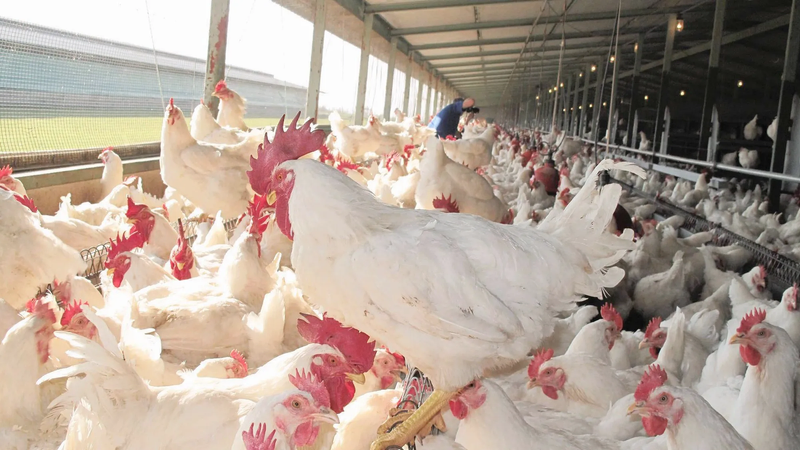As the migration of wild birds approaches, South African poultry farmers are on high alert over the looming threat of Highly Pathogenic Avian Influenza (HPAI), or bird flu, which has wreaked havoc on the local industry in the past. The highly contagious disease, typically carried by migratory birds, has the potential to devastate the country’s poultry sector, leaving farmers fearing a repeat of the 2023 outbreak that saw nearly 10 million birds culled.
Despite no confirmed cases of HPAI in the country yet, the South African Poultry Association (SAPA) warns that the situation could change rapidly, especially as wild birds from Europe make their way to South Africa during winter. Izaak Breitenbach, a representative from SAPA, expressed grave concerns about the industry’s preparedness to handle a new outbreak. He predicted that should the virus hit, millions of chickens could be lost, devastating local farmers.
“If we have an outbreak, that will certainly cost the industry; we will lose millions of chickens, and it will all have to be recovered from the consumer, which we don’t want to do because we supply cheap protein to the masses,” Breitenbach told the Daily News.
Farmers have raised alarms over the government’s stringent biosecurity protocols, arguing that many in the industry struggle to meet the required standards and lack the resources for vaccination efforts. According to Breitenbach, the current response measures—such as culling and biosecurity controls—have proven ineffective, both in South Africa and internationally, pointing to ongoing avian influenza outbreaks in Europe and the US.
In 2023, the South African poultry sector suffered severe losses, culling over 9.6 million birds and experiencing financial damages amounting to R9.5 billion. The industry only began to recover last year, and any new outbreak could have catastrophic effects, not only financially but also on food security and public health.
“I am afraid that we will lose many of our chickens should the virus hit again. We are still recovering from the past bird flu, and we plead with the government to be prepared for the worst-case scenario,” said Sifiso Mkhize, a poultry farmer from Mayville.
The situation is further complicated by the fact that South African farmers are not compensated for culled birds, and no farms have been granted permission to vaccinate. Vaccination has been a hot topic of discussion, with industry leaders urging the government to implement a more proactive approach, given the devastating consequences of previous outbreaks in 2017 and 2023.
“We need something else. We need to vaccinate our birds. The government needs to intervene and put us in a position to comply with its standard and stringent protocols so that we can vaccinate,” Breitenbach stressed.
In response to these concerns, the Department of Agriculture announced that a vaccination protocol against HPAI was signed into effect in November 2023. According to spokesperson Joylene van Wyk, this protocol will allow farms to vaccinate under specific conditions, focusing on biosecurity, surveillance, and traceability. However, Breitenbach and other industry leaders remain skeptical, calling for more practical and actionable measures to protect the poultry sector from the looming threat.
As the migration season approaches and tensions rise, South Africa’s poultry industry is hoping for swift and effective action from the government to prevent another devastating bird flu outbreak.
